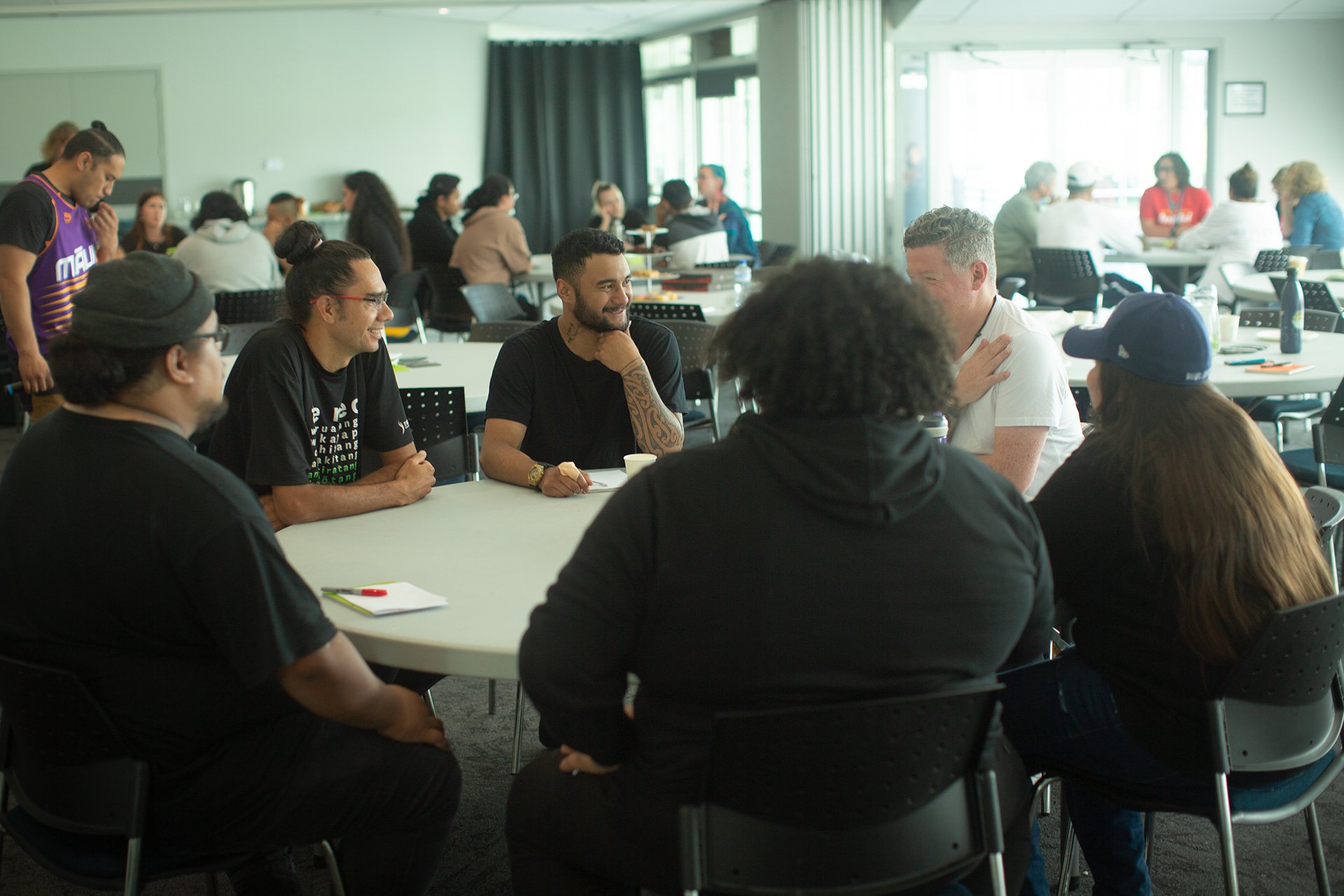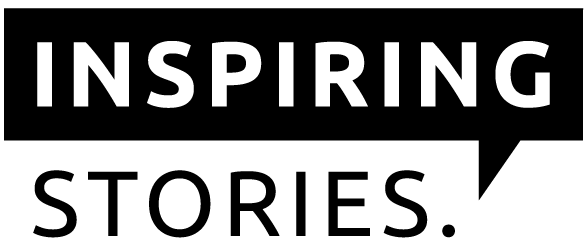
The Impact Challenge
Our kaupapa
We want to put funding, resources and decision-making into the hands of rangatahi who want to bring a future of climate justice into reality.
Along the way, rangatahi can get inspired and build skills and confidence through attending workshops, webinars and mentoring.
This beautiful artwork by Caleb Ihe depicts the dreams of 125 rangatahi from across Aotearoa, which forms our co-created vision for climate justice.
This vision forms the centre pou of our Impact Challenge.
We asked rangatahi how their vision and dreams for climate action aligned with this vision - we gave six ambitious projects $1000 to support their vision.
Our 2025 Impact Prizes were decided through a two set process. Step one was a participatory process whether all rangatahi who applied got to cast their vote for the choice for who they thought should get the funding. Step two saw a panel of 12 (made up of Inspiring Stories staff, Impact Challenge Coordinators and Inspiring Stories Youth Advisory Group members) score the applications. The following six projects have received funding:
Without Waste - creating a reusable dish fleet initiative in Ōtautahi
Ōpōtiki Rangatahi Give Back Crew - restoring the mauri of Tarawa creek
The Seed Pod - learning pods for environmental education
Whangārei Youth Action Group - Project Earth Buddy environmental education
Anjali - surveying and developing sustainable community practices
Jordan - Avondale Community Garden community kai resilience
Along with the funding, each project will receive a mentor to support them over the next few months of their project development.
Keep a look out for our next Impact Challenge which will take place in the first half of 2025
There are a few ways to take part in the Impact Challenge
Attend workshops and webinars | Apply for a $300 grant | Receive mentoring | Win a $1000 Impact Prize
Please note, the Impact Challenge has concluded for 2024
Check out our 2024 webinar line-up:
-
Youth-led ideas for climate action, especially if you want to bring your community together to explore climate justice. We want to make our funding work for you, so all ideas are welcome! Some non-exhaustive examples could include:
Piloting or trialing a climate project
An improvement to your local community, for example, setting up a local bike group or bike repair community centre, or community compost
Community wānanga, hui or workshops to bring people together for dreaming, training or movement-building around climate justice
Needing a funding ‘top-up’ for a pre-existing climate project
Creating climate educational resources for your community - for example, documentaries, short films, videos, a Zine, or posters
Putting on a community theatre show to raise awareness about climate justice solutions
Coordinating beach clean ups, community planting, river clean ups
Climate justice campaigns
Also, if you want some help, you can workshop your idea with us! Email:
julia@inspiringstories.org.nz if you are based in the Bay of Plenty
jodie@inspiringstories.org.nz if you are based in Northland
jess@inspiringstories.org.nz for anywhere else in Aotearoa
-
Youth aged 14-25 and youth-led groups based in Aotearoa New Zealand.
-
Our $300 micro grants are open until the beginning of September 2024 and available to the first 25 applicants.
The $1000 Impact Prizes are peer judging by other participants in the challenge and by a panel of externals judges
If your organisation would like to support youth in your region to take part in the Impact Challenge:
Stories from the Impact Challenge 2023
We are proud to share some of the incredible mahi of participants involved in the Impact Challenge last year:
Y4CA (Youth 4 Climate Action) - a new youth led initiative was established in Wellington.
A young actor in Wellington experimented with representing the El Niño-Southern Oscillation climate phenomena through theatre.
Ōpōtiki will have a community compost and flood resilience initiative led by rangatahi.
Disabled rangatahi will have accessibility to climate strikes in Tāmariki Makaurau.
Pasifika youth in Warkworth feel more empowered to talk about how climate change is affecting the islands of their heritage.
The traditional ecological knowledge (TEK) of the Tuvaluan people across the Pacific will be recorded in an audiovisual compilation of stories and experiences.
Youth in Whangarei learnt about good waste management and effective recycling.
“For me, the Impact Challenge was an open door to educate and raise awareness about the impacts of climate change on our Pacific Islands. Many of the Pasifika students learned the significance of this topic which led them to think of ways to mitigate and cater to this problem. I think that’s what made me enjoy the Impact Challenge a lot - to see more minds merge and create better solutions”
- Ioanna Corrie, Mahurangi College workshop leader
“I learned that we have a lot of students in Tai Tokerau who care about the environment and want to do their part for climate action, but they don't know where to start. They feel overwhelmed by different paths of environmental action and the overbearing doom that the possibilities of our future climate hold. Therefore, I created a turangawaewae activity. This was for students to first connect with their personal connection to the environment and choose a 'special place' that they would like to connect. From here, we workshopped which part of the environment that place belonged to, following the environmental domains represented in the Matariki cluster. I found that by having young people create a personal connection to their environment, it helps them understand why they care and for them to take a direction with the action they wish to take.”
- Cezanne Hamilton, Whangarei workshop leader
“This workshop was an amazing opportunity to connect with people that share a passion of wanting to care for our environment and keep Papatūānuku safe and healthy, and I’m so grateful that I was able to join in on such an event.”
- Swadha Makhija, Wellington Y4CA workshop participant
In 2023, we gave away 4 x $1000 Impact Prizes
We had 22 applications and these prizes were decided by a participatory process which includes the applicants. The winners were:
Moana Tasi Project - a programme that seeks to address a wide array of environmental sociocultural issues through community capacity-building across Pacific communities in four areas: resilience, advocacy, environmental stewardship, and cultural connection using an audiovisual compilation of stories and experiences of Tuvaluan people across the Pacific that will highlight their traditional ecological knowledge (TEK) related to marine resources, attitudes toward potential statelessness due to sea-level rise, and climate change.
Kia Whakawhirinaki Rangatahi - Community Compost and Flood Resilience Initiatives in Ōpōtiki.
Fridays for Future Tāmaki Makaurau - funding to increase accessibility to Climate Strikes for disabled young people including NZSL interpreters for each climate strike and a minivan plus cover parking fees so people with limited mobility can accompany the strike as well as co-create a resource with other disabled people that can be applied to other strike/protest/march settings in Aotearoa New Zealand.
Banaban Human Rights Defenders - climate justice workshops catered for Banaban youth in Auckland to equip them in campaigning skills, engagement, and human rights knowledge to fight phosphate mining on their Island.








